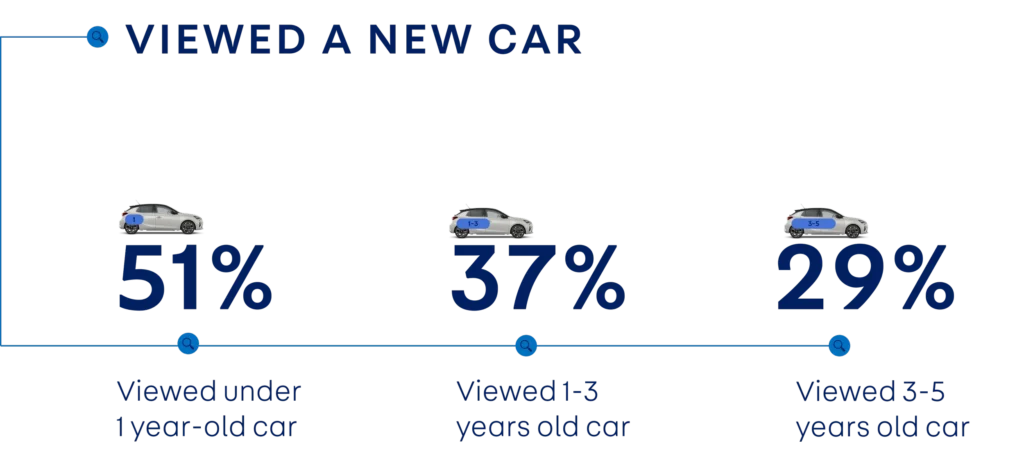In an age where cars are becoming increasingly similar to rolling computers, a recent survey by JD Power has provided eye-opening insights into what tech features car buyers truly value—and what they could do without. As automakers strive to integrate more advanced technologies, they may be missing the mark on certain innovations, while hitting the nail on the head with others. This article dives deep into the findings of the JD Power survey, exploring which tech features are winning the hearts of consumers and which ones are falling flat.
Explore the latest JD Power survey results on car tech features. Discover what car buyers love and hate about in-car technology, from passenger screens to hands-off driving systems.
Why Car Tech Matters: A Changing Landscape
The automotive industry is in the midst of a technological revolution. Car manufacturers are increasingly looking to emulate tech giants like Tesla by packing vehicles with cutting-edge features. These innovations range from facial recognition to advanced driver-assistance systems. However, as the JD Power survey reveals, not all tech is created equal. Some features resonate with consumers, while others are met with indifference or even frustration.
The Importance of Consumer Feedback in Automotive Innovation
Consumer feedback is invaluable in guiding the future of automotive technology. With the rapid pace of innovation, it’s easy for manufacturers to lose sight of what their customers actually want. JD Power’s survey, which included responses from 82,000 drivers of 2024 model year vehicles, highlights the disconnect between what carmakers think is innovative and what consumers find useful.

Tech Features: The Hits and Misses
Passenger Screens: A Luxury That Few Appreciate
Passenger screens might seem like a luxurious addition to modern vehicles, but according to JD Power, they aren’t as popular as one might think. Only 10% of vehicles carry a passenger in the front seat daily, making these screens an underutilized feature. Vehicles like the Porsche Taycan, Lincoln Nautilus, and Jeep Grand Cherokee offer these screens, but their value to the average consumer appears limited.
Gesture Controls: A Solution to a Nonexistent Problem?
Gesture controls, designed to allow drivers to adjust settings with a simple wave of the hand, have also failed to impress. JD Power’s survey indicates that these controls are often seen as problematic and lacking in functionality. The technology might look futuristic, but it doesn’t solve any pressing issues for drivers, leading to a lukewarm reception.
Facial Recognition and Fingerprint Readers: Overhyped and Underused
Facial recognition and fingerprint readers are two more examples of tech features that sound impressive but fall short in real-world application. JD Power’s data suggests that these features attempt to solve problems that most drivers don’t consider urgent. As a result, they’re often seen as unnecessary additions rather than must-have innovations.
Hands-Off Highway Driving Systems: A Mixed Bag
The Promise and Perils of Hands-Off Driving
One of the more surprising findings from the JD Power survey is the lukewarm reception of hands-off highway driving systems, such as General Motors’ Super Cruise and Ford’s BlueCruise. These systems, which allow for limited hands-free driving under certain conditions, are touted as the future of driving. However, consumers aren’t as thrilled as one might expect.

Why Hands-On May Still Be Better
Despite the allure of letting the car do the work, many drivers find that hands-off systems don’t offer a significant advantage over traditional hands-on driver assistance. The technology doesn’t address a pressing need for most drivers, making it a harder sell. That said, as drivers become more familiar with these systems, acceptance may increase over time.
The Role of Trust in Hands-Off Systems
Trust plays a crucial role in the adoption of hands-off driving systems. Many drivers are hesitant to fully embrace this technology, primarily due to concerns about safety and reliability. As these systems become more refined and trustworthy, we may see a shift in consumer attitudes.
Tech Features Consumers Love
Driver Aids: Reverse Automatic Emergency Braking and Blind Spot Cameras
While some advanced tech features struggle to gain traction, others are met with widespread approval. Driver aids like reverse automatic emergency braking and blind spot cameras are highly valued by consumers. These technologies address known safety concerns, making them more likely to be embraced by drivers.
Smart Climate Control: A Feature for All Seasons
Smart climate control is another technology that has won over many drivers. This system automatically adjusts the vehicle’s climate settings based on conditions like sunlight or outside temperature. It’s a practical innovation that enhances comfort without requiring any input from the driver.
The Growing Appeal of Artificial Intelligence-Based Features
As AI continues to evolve, its applications in automotive technology are expanding. Features like smart climate control are just the beginning. JD Power predicts that AI-driven innovations will become increasingly common in vehicles, offering more personalized and intuitive driving experiences.
Top Innovators: Tesla, Rivian, and Genesis
Tesla: The Tech Leader
When it comes to automotive innovation, Tesla remains at the forefront. JD Power’s survey ranks Tesla among the top brands for tech innovation, though it’s important to note that Tesla, Rivian, and Polestar aren’t officially ranked due to incomplete registration data.
Rivian: A Rising Star
Rivian, another electric vehicle manufacturer, is quickly gaining a reputation for its cutting-edge technology. The company’s focus on adventure-ready vehicles with innovative features has made it a favorite among tech-savvy consumers.
Genesis: Luxury Meets Innovation
Genesis, the luxury arm of Hyundai, also ranks highly in terms of tech innovation. The brand’s commitment to combining luxury with advanced technology is paying off, as evidenced by its strong performance in JD Power’s survey.

